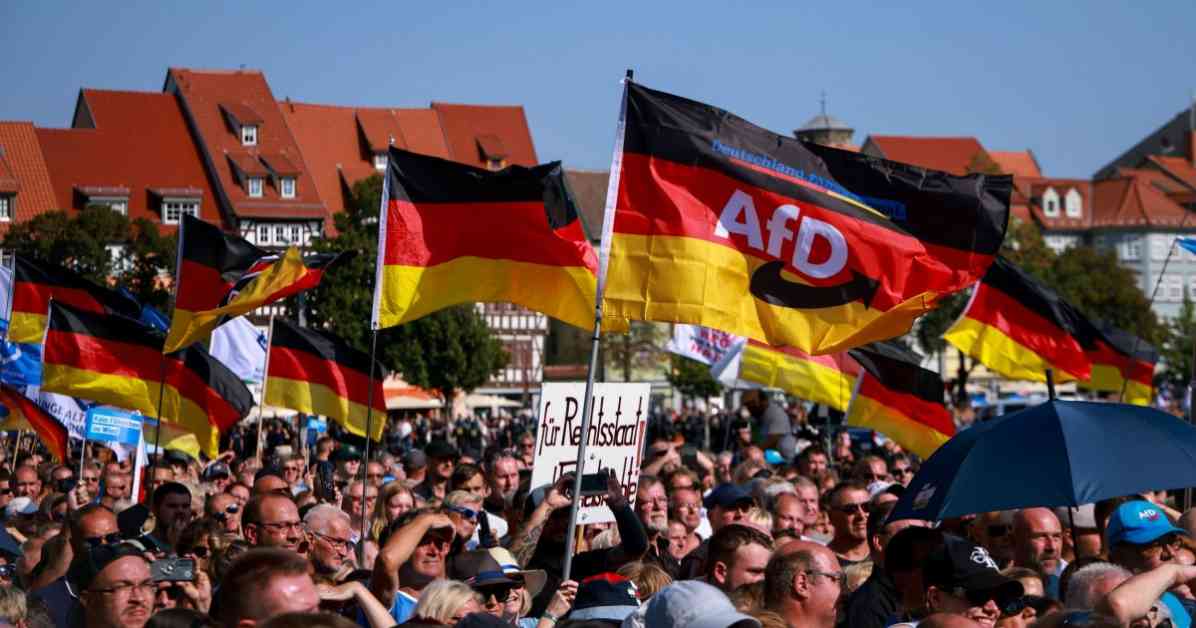The far-right party AfD is poised to achieve a historic election win in Germany, marking a significant shift in the country’s political landscape. Exit polls indicate that AfD is set to become the largest party in Thuringia, a state in the eastern part of the country, with 30.5-33.5% of the vote. This would be the first time a far-right party has won a state election in Germany since World War II.
The rise of AfD is particularly pronounced in the formerly Communist east of Germany, where the party has garnered significant support. In Saxony, another state where elections were held, AfD is neck and neck with the main German opposition party, the centre-right Christian Democratic Union (CDU).
Despite its electoral success, AfD may face challenges in forming a government in Thuringia or Saxony. The CDU, which has a longstanding policy of not cooperating with the anti-immigrant AfD, could complicate the formation of a coalition government.
Alice Weidel, a national co-leader of AfD, criticized the CDU’s stance, calling it ‘pure ignorance’ and asserting that voters want AfD to have a role in governing. This tension between mainstream parties and the far-right reflects a broader shift in German politics.
The state elections in Thuringia were preceded by protests in the regional capital of Erfurt, where thousands rallied against the AfD, labeling them as fascists. The controversy surrounding AfD was further heightened when local party leader Björn Höcke was fined for using a Nazi slogan, claiming ignorance of its meaning.
In the midst of this political upheaval, the Social Democratic Party (SDP) led by Chancellor Olaf Scholz faces challenges. Forecasts suggest that the ruling coalition parties may struggle to win seats in Thuringia, underscoring the discontent among voters towards mainstream parties.
Another notable figure in the German political landscape is Sahra Wagenknecht, whose Sahra Wagenknecht Alliance has gained traction in Thuringia and Saxony. Wagenknecht, a left-wing populist, has attracted support with her positions on immigration and Ukraine, challenging traditional party lines.
Looking ahead, the upcoming national election in Germany will be crucial in shaping the country’s future political direction. With strong anti-immigrant sentiment and skepticism towards Germany’s military involvement in Ukraine, the political landscape is undergoing significant changes.
As Germany navigates these political shifts, the implications for the ruling coalition and mainstream parties remain uncertain. The rise of AfD and the emergence of alternative political figures like Wagenknecht highlight the changing dynamics in German politics.
In conclusion, the historic election win for AfD in Thuringia and Saxony signals a significant shift in German politics. As the country prepares for the next national election, the rise of far-right parties and the emergence of alternative political voices pose challenges for the traditional political establishment. The outcome of these elections will have far-reaching implications for Germany’s future direction.












